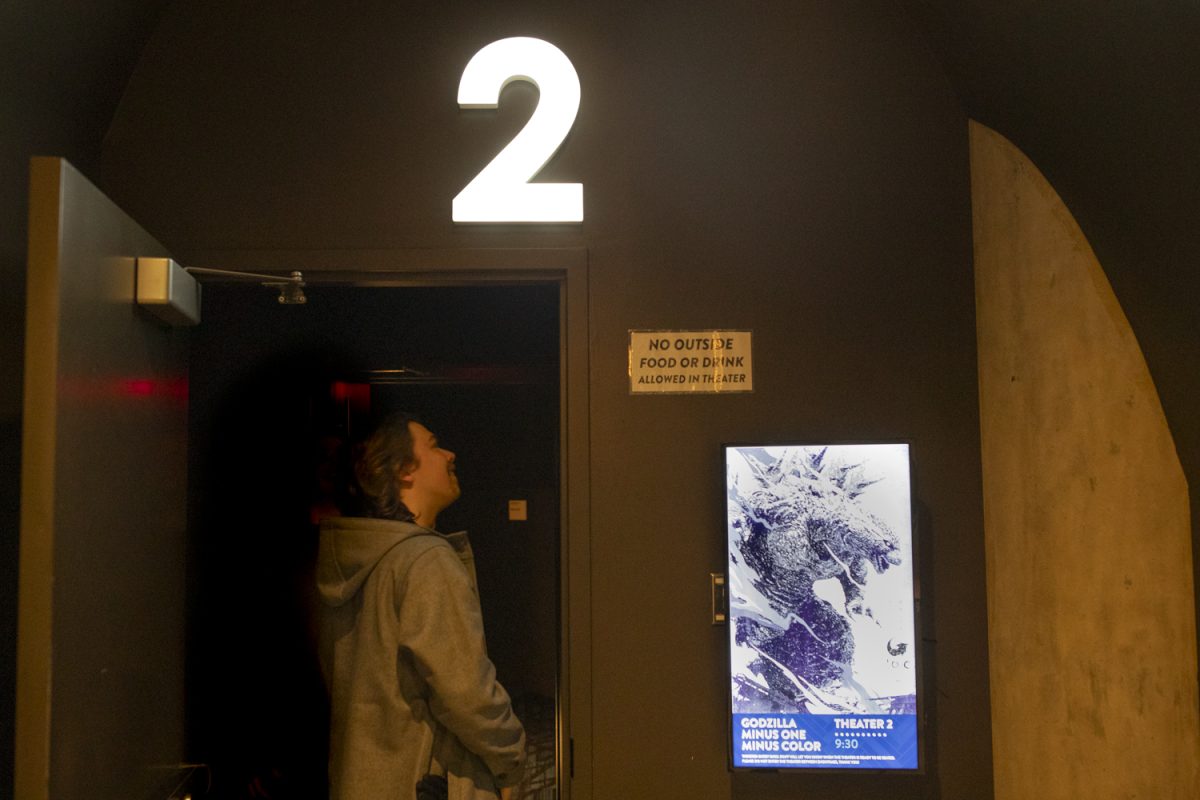After becoming the highest-grossing Godzilla movie from Japan, the much-anticipated grayscale version of “Godzilla Minus One” is now screening at FilmScene in Iowa City.
Many University of Iowa film students and fans of the original release question the purpose of director Takashi Yamazaki’s choice in the film, named “Godzilla Minus One/Minus Color.”
Fourth-year screenwriting student Emily Mueggenberg said the modern use of black and white cinematography is appropriate in certain circumstances, but even she questions the value of re-releasing otherwise colored films this way.
“I think it’s kind of weird,” she said. “If I had seen the film I’d probably have a better opinion, but I guess I don’t really see the point of it.”
Second-year cinema student Logan McCaw voiced a similar opinion.
“I think it is like a style,” he said.
McCaw said it’s a net positive that modern directors have the artistic freedom to choose between shooting black and white and color, but he also believes this freedom can be a double-edged sword.
“There’s this one theory,” McCaw said, referring to André Bazin’s Myth of Total Cinema. “Cinema should replicate real life as much as possible, [meaning] no black and white. But there’s also the other end where cinema is supposed to be like [another] reality. It’s not supposed to be like real life. So there are two sides.”
While cinema can represent an escape from reality for some, others feel it should true to reality.The choice to re-release “Godzilla Minus One” without color, then, could be interpreted on a spectrum from tacky to genius.
“It’s kind of the same thing with Zack Snyder’s ‘Justice League,’” McCaw said, further explaining how some directors choose to pursue black and white films solely for the gimmick. “You have to choose one or the other.”
UI first-year cinema student Reece Hunerdosse offered a different perspective.
“Any movie can be black and white depending on how [the filmmaker] wants the vibe to be,” he said. “I think it’s a medium to tell their story.”
Despite this, he voiced reservations about the new re-release.
“I think it is kind of cheap,” he said.
Hunerdosse said the primary purpose for the film’s re-release is to make more money, but he still sees the potential artistic merit.
“It’s paying homage to the original,” he said.



